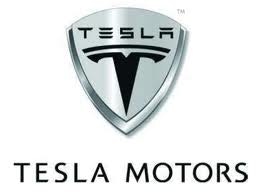
The good news from Tesla
Tesla Motors Inc (NASDAQ:TSLA) may very well be a game-changing company, as a lot of the media labels it. The company has, in a short period of time, changed the way people think about electric cars. They are no longer a futuristic mode of transportation in the infancy of their development; they are a viable form of transportation that cost just a bit more than comparable gasoline-powered cars.
The good news that has hit the market lately mainly has to do with the fact that Tesla began to turn a profit much quicker than anyone had expected. Additionally, the Model S, Tesla Motors Inc (NASDAQ:TSLA)’s only vehicle currently for sale won accolades from virtually every respected source. Motor Trend named it the 2013 “Car of the year” as did Automobile Magazine. The string of news that has been better than anyone had expected has catapulted Tesla shares into (in my opinion) fantasyland.
What Tesla’s $14.2 billion market cap means
At the current share price, Tesla Motors Inc (NASDAQ:TSLA) has a market cap of $14.8 billion, and I have read numerous times that Tesla is on its way to becoming the next $100 billion auto company. To put into perspective what this valuation is implying, let’s take a look at some other, more mature car companies: Ford Motor Company (NYSE:F) and Toyota Motor Corporation (ADR) (NYSE:TM).
Toyota Motor Corporation (ADR) (NYSE:TM) is the largest auto manufacturer in the world, and currently trades at a market cap of $206.5 billion, and carries about $43.2 billion in net debt (long debts minus cash), so let’s say that the total “value” of Toyota is $249.7 billion. Toyota sold 8.87 million vehicles in 2012, so the company is valued at $28,151 per vehicle sold annually.
Similarly, Ford Motor Company (NYSE:F) has a market cap of $65.9 billion and carries $69.2 million in net debt, for a $135.1 billion total valuation. Having sold 5.67 million vehicles last year, we have $23,827 in market cap per vehicle. Taking the average of these two companies, let’s assume that a mature car company is worth just under $26,000 per vehicle sold each year.
Now, a company like Tesla gets its valuation from the company that the market “expects” it to become, not what it is today. Since the average Tesla vehicle is about three times the cost of a Ford Motor Company (NYSE:F) or Toyota Motor Corporation (ADR) (NYSE:TM) vehicle, let’s say that a mature Tesla Motors Inc (NASDAQ:TSLA) would be worth about $78,000 for each vehicle sold. Given the current market cap of Tesla, that would imply that the company’s annual sales are expected to grow to about 190,000 units annually.




